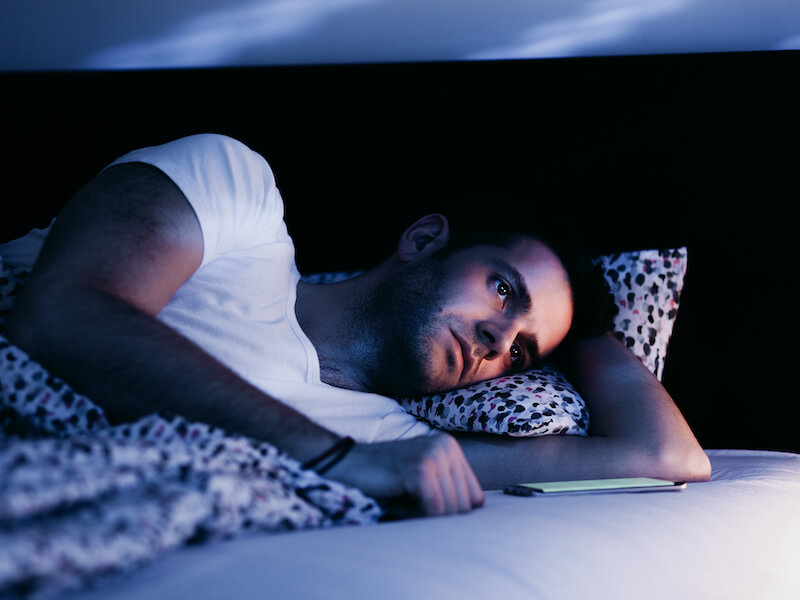
We’re accustomed to looking at snoring as a nuisance, something that annoys you and, maybe, costs your partner a good night’s sleep every now and again. However, in many cases, snoring can be caused by a condition known as sleep apnea.
When you’re asleep, you can suddenly stop breathing due to sleep apnea. While it’s a rather common condition, sleep apnea can obstruct respiration and cause severe health issues, so it should be taken seriously.
What is sleep apnea?
Sleep apnea is, technically, a breathing disorder. The most common type of sleep apnea is called obstructive sleep apnea,” and here’s how it works:
- When you fall asleep, your body gets relaxed.
- The relaxed tissue blocks your airway.
- You can’t inhale or exhale through this blocked airway and the outcome is that you stop breathing during the night.
- In some cases of sleep apnea, this blockage can occur dozens or hundreds of times every night.
Here are some normal symptoms of sleep apbea:
- Your partner is noticing that you sporadically stop breathing when you sleep.
- You have a snoring problem.
- When you wake up, your mouth is dry.
- When you get up in the morning, you have a headache.
- Feeling tired or exhausted even when you got a full night’s sleep.
Is your snoring connected to sleep apnea?
Snoring is extremely common, so how can you tell when it’s normal (and non-harmful) and when it might be sleep apnea? Generally, there are two presentations you can watch out for:
- Deep, loud snoring: Usually, snoring is caused by a restriction in your airways, causing light, high-pitched sounds. Sleep apnea is caused by a collapse or near collapse of your airways, and this results in deep, loud snoring.
- Gasping or choking sounds while snoring: These choking or gasping sounds are the result of your body straining to breathe through this airway collapse. It might not even be something you observe, if you have a partner, ask them about these choking or gasping sounds.
Symptoms could differ from person to person, but if you think that you are going through sleep apnea, it’s essential to talk to us about diagnosis and treatment.
How is sleep apnea diagnosed?
Sleep apnea isn’t something you can diagnose on your own. We might have to set up a sleep study in some cases. There are two possible sleep studies that we may order:
- Home sleep test: A sleep test that includes a device you can use at home is a basic home sleep study. Instead of going to a clinic for testing, you connect this device when you’re in your own bed. Usually, home sleep tests will monitor heart rate, blood oxygen levels, and airflow. The issue is, these tests can sometimes deliver inconclusive results. When this type of study fails to get precise results you will need to do a follow-up study performed at our clinic.
- Nocturnal polysomnography: This is the conventional overnight “sleep study.” Throughout the whole of your sleep experience, this nocturnal polysomnography study will take detailed measurements. You will be connected to a variety of monitors while you sleep in a special medical suite. Nocturnal polysomnography is much more reliable than a home sleep study while maybe a bit more inconvenient.
Sleep apnea will usually be ruled out or confirmed by these diagnostics. So that you can rule out possible blockages, you might, in some cases, be referred to an Ear-Nose-and-Throat specialist.
How is sleep apnea managed?
It’s essential to follow up on the appropriate treatment once sleep apnea is diagnosed. A continuous airway pressure device (CPAP) is normally the primary treatment for patients with sleep apnea. This device uses positive pressure to, effectively, blow air into your lungs all night long. This assists your breathing during the night and helps stop your airways from collapsing.
But CPAP machines are often quite uncomfortable. That said, most patients positively adapt to them (and sleep better) after a short time.
There are other treatments, also, usually reserved for more serious cases of sleep apnea. Anything from different devices to surgery, or both, could be included in these other therapies. Make sure you come in and speak with us as there’s no one-size-fits-all solution.
There may be more to it than simple snoring
Sleep apnea is all too easy to dismiss and to write off as not much more than extra loud snoring. But that snoring may be negatively impacting your health and your quality of life. You will remain healthier and get better sleep if you get your hearing diagnosed and treated.
Resources
https://www.mayoclinic.org/tests-procedures/polysomnography/about/pac-20394877